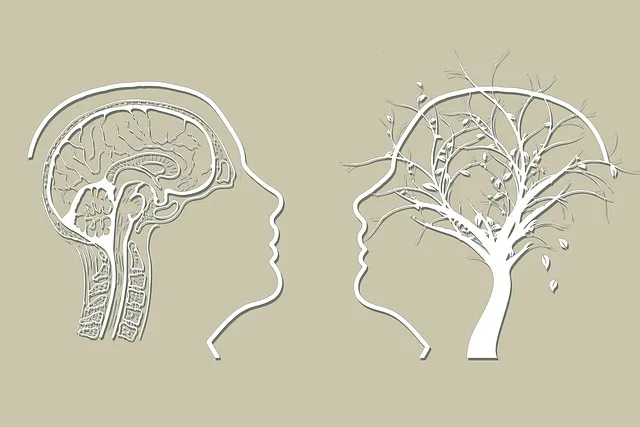Community outreach programs by organizations like Kaiser Permanente's Lafayette mental health center significantly improve mental well-being and accessibility of services through tailored initiatives, reducing stigma and encouraging early intervention. Their specialized programs and partnerships with community leaders bridge gaps in care, fostering resilience and empowering individuals with self-care tools. Positive reviews highlight the center's success in enhancing mental health outcomes and reducing healthcare provider burnout, making it a model for effective community engagement in Lafayette and beyond, as evidenced by both quantitative data and qualitative feedback.
Community outreach programs play a pivotal role in connecting healthcare services with underserved populations. This article delves into the significance of such initiatives, using Kaiser Permanente Mental Health Center in Lafayette as a case study. We explore how their approach has impacted local communities, focusing on strategies for effective engagement. Additionally, we measure success through center effectiveness and community feedback, highlighting best practices that can guide future programs, particularly in mental health services, based on Kaiser Permanente mental health center reviews in Lafayette.
- Understanding Community Outreach Programs: Their Role and Impact
- Kaiser Permanente Mental Health Center in Lafayette: A Case Study
- Implementing Effective Outreach Strategies for Better Engagement
- Measuring Success: Reviewing the Mental Health Center's Effectiveness and Community Feedback
Understanding Community Outreach Programs: Their Role and Impact

Community outreach programs play a pivotal role in fostering mental well-being and strengthening social connections within diverse communities. These initiatives, often led by organizations like Kaiser Permanente mental health centers in Lafayette, aim to bridge the gap between specialized services and those who may face barriers to accessing care. By taking these programs to where people are, whether it’s through local events or partnerships with community leaders, mental health resources become more accessible and culturally relevant.
Such outreach goes beyond simply providing information; it empowers individuals with tools for self-care routine development, enhances mood management skills, and cultivates a sense of inner strength. These programs can significantly impact communities by reducing stigma around mental health, encouraging early intervention, and promoting overall resilience. For instance, Kaiser Permanente’s efforts in Lafayette have been praised for their holistic approach, addressing not just immediate needs but also fostering long-term strategies for improving mental health outcomes at the grassroots level.
Kaiser Permanente Mental Health Center in Lafayette: A Case Study

The Kaiser Permanente Mental Health Center in Lafayette stands as a shining example of successful community outreach programs implementation. Through innovative initiatives and tailored services, the center has been instrumental in promoting mental health awareness and access to care among residents across diverse demographics. By offering specialized programs designed to address specific mental health challenges, such as stress management and burnout prevention, Kaiser Permanente has fostered a supportive environment that encourages open conversations about mental well-being.
The center’s commitment to community engagement is evident in its array of Mental Health Education Programs. These programs focus on empowering individuals with knowledge and skills to manage their mental health effectively. By combining professional expertise with a client-centric approach, Kaiser Permanente ensures that services are not only accessible but also culturally sensitive. Positive reviews from the Lafayette community underscore the impact of these initiatives, highlighting improved mental health outcomes and increased resilience among participants.
Implementing Effective Outreach Strategies for Better Engagement

Implementing effective outreach strategies is a key aspect of successful community engagement, especially when aiming to improve mental health services in underserved areas like Lafayette. Organizations like Kaiser Permanente mental health centers play a vital role in addressing local needs. To ensure impactful outreach, centers should focus on tailored messaging and accessible platforms. This might involve hosting informational sessions at local schools or community centers, leveraging social media to reach younger audiences, and partnering with faith-based organizations to build trust within the community.
By employing these strategies, Kaiser Permanente mental health center reviews Lafayette can enhance their visibility and appeal to a broader range of individuals seeking support. Additionally, incorporating conflict resolution techniques and risk assessment tools can better equip staff to handle sensitive situations. This holistic approach not only promotes anxiety relief but also fosters a sense of safety and acceptance within the community, ultimately strengthening the relationship between healthcare providers and those they serve.
Measuring Success: Reviewing the Mental Health Center's Effectiveness and Community Feedback

Measuring the success of community outreach programs is crucial, especially when evaluating the impact of a Kaiser Permanente mental health center in Lafayette. The effectiveness of such initiatives can be assessed through various means, including quantitative data and qualitative feedback from both healthcare providers and the local community. Reviews of the Kaiser Permanente mental health center have been consistently positive, highlighting its role in improving access to care and promoting mental well-being.
Community feedback plays a pivotal role in understanding the center’s contribution to burnout prevention strategies for healthcare providers. By incorporating coping skills development sessions into their outreach programs, the center not only addresses individual mental health but also implements robust risk management planning for mental health professionals. These initiatives ensure that both patients and healthcare providers have access to resources that foster a supportive environment, ultimately reducing potential risks and enhancing overall service delivery.
Community outreach programs, as exemplified by the Kaiser Permanente Mental Health Center in Lafayette, play a pivotal role in enhancing access to healthcare services. By implementing effective strategies and measuring success through both effectiveness and community feedback, such initiatives can significantly impact mental health outcomes. The case study highlights the importance of tailoring approaches to local needs, fostering trust, and building strong relationships within the community. Moving forward, integrating these lessons into healthcare operations can lead to improved Kaiser Permanente mental health center reviews Lafayette and beyond, ultimately contributing to a healthier society.






